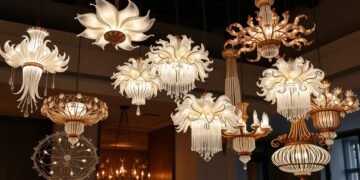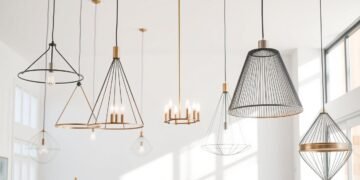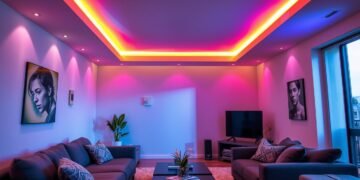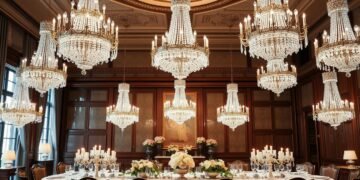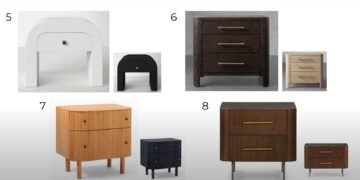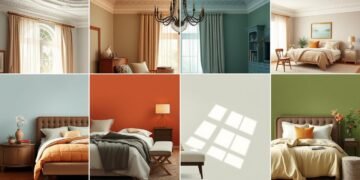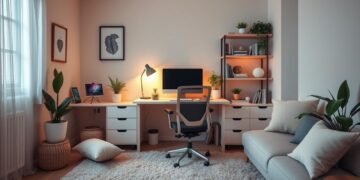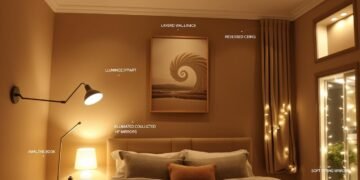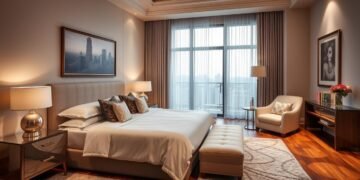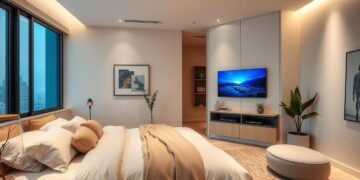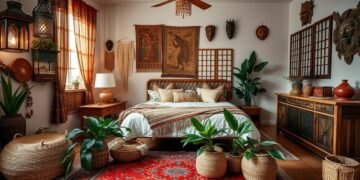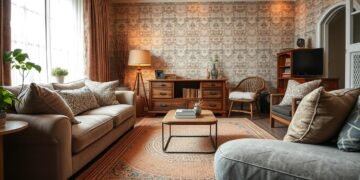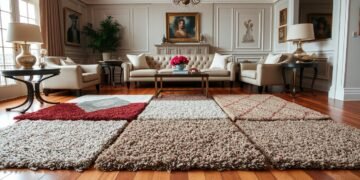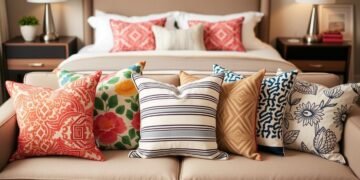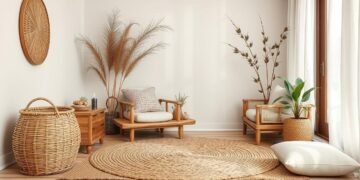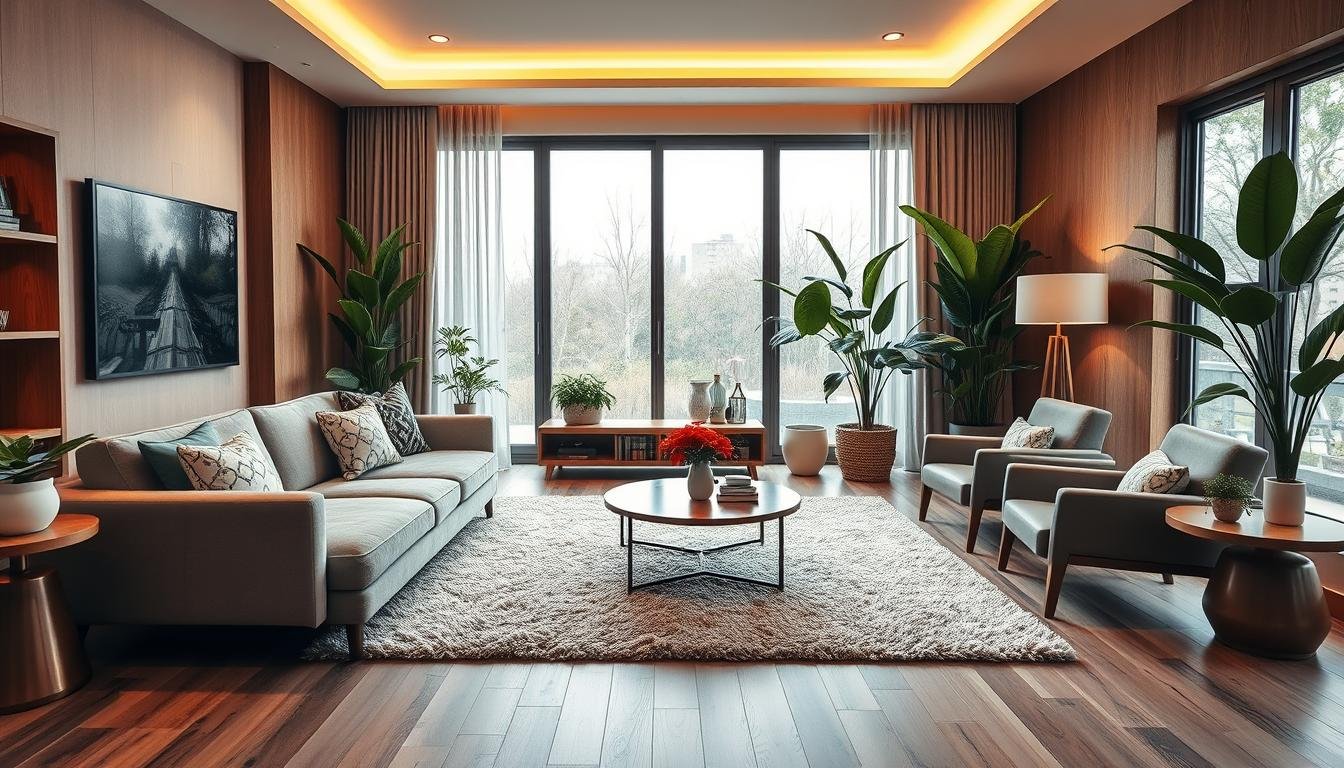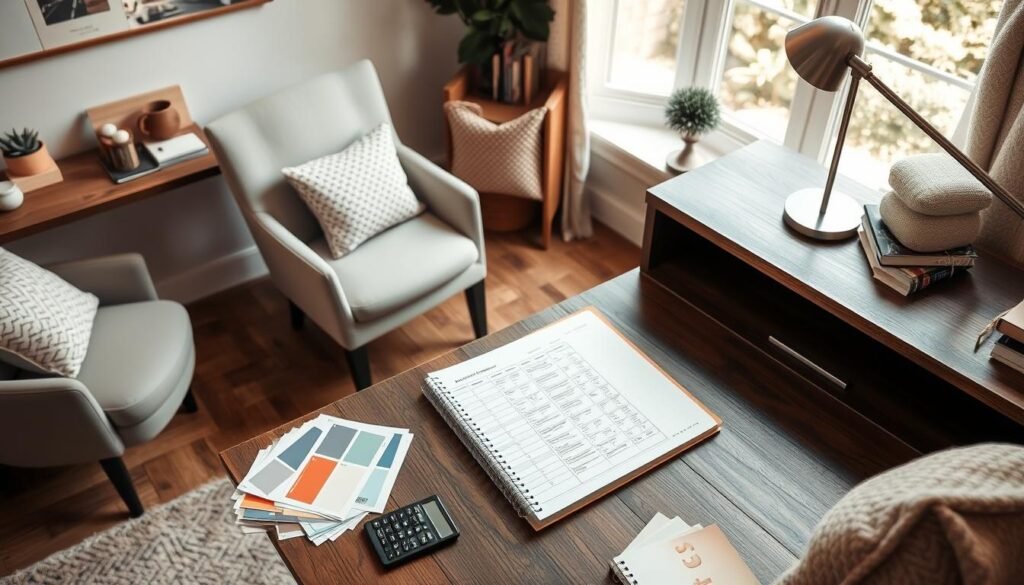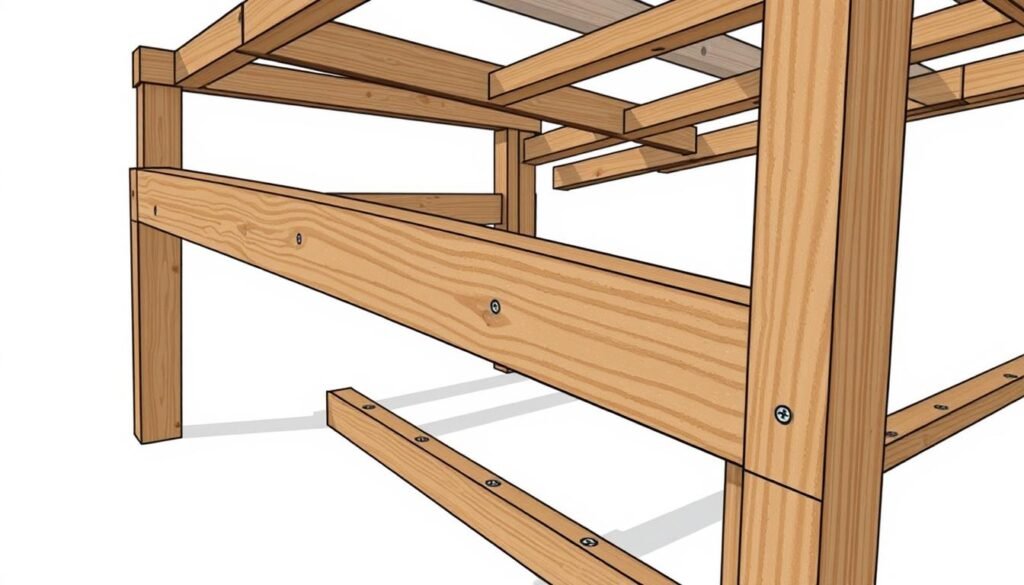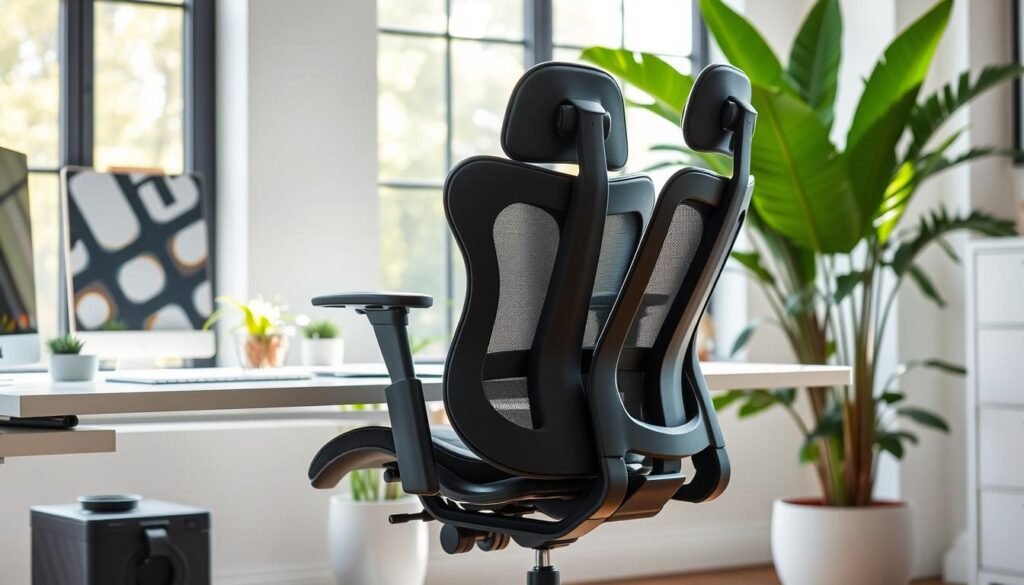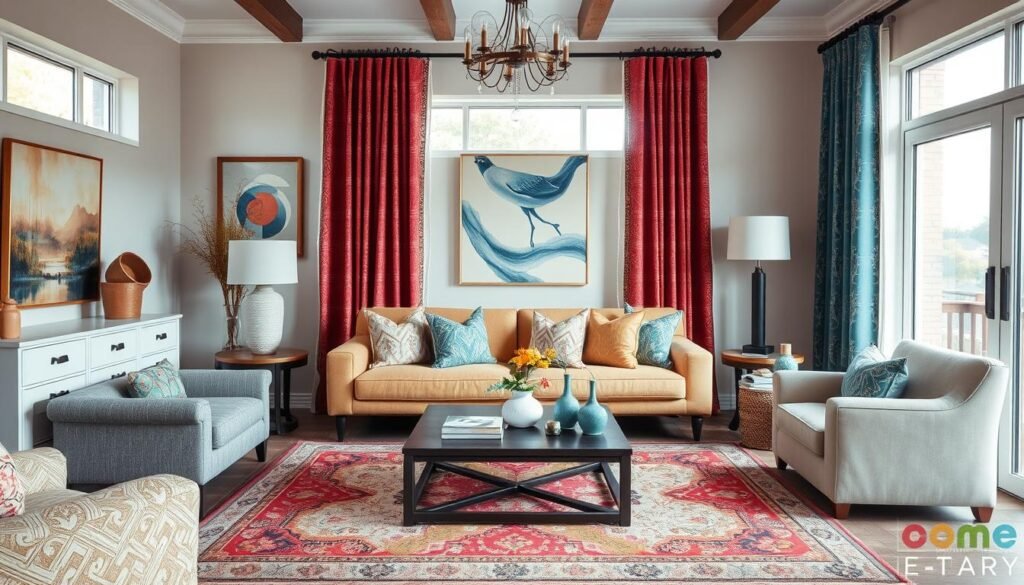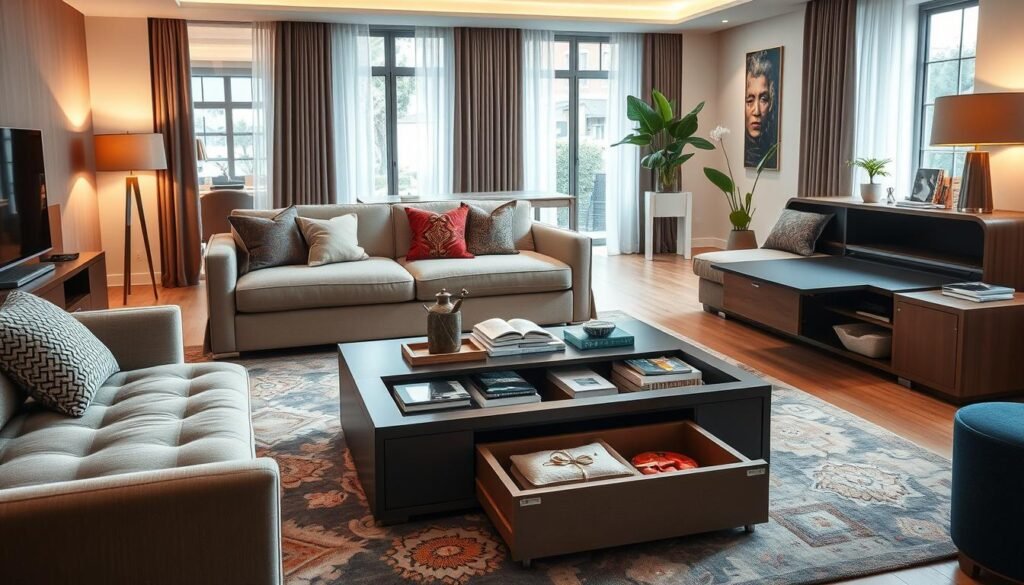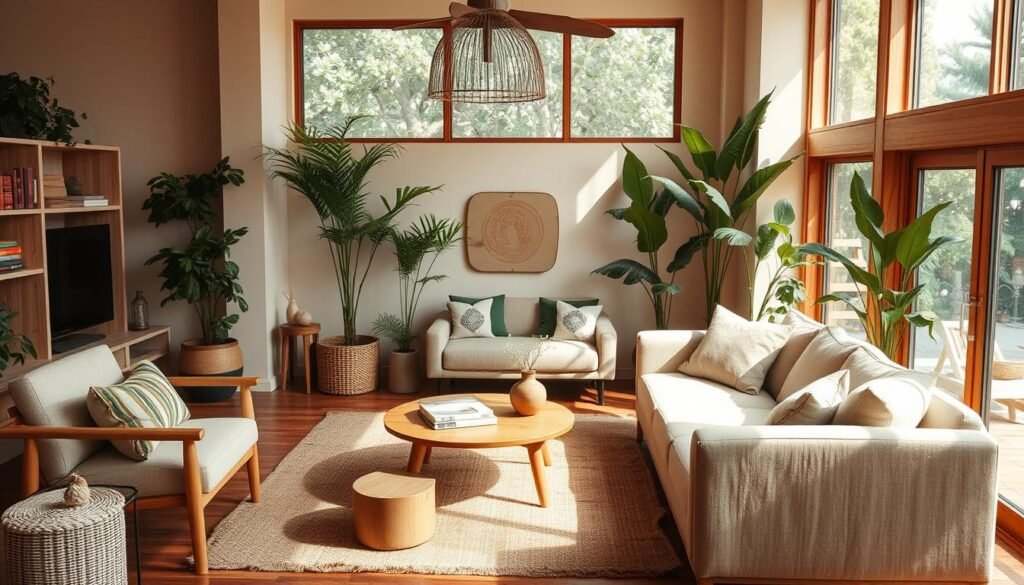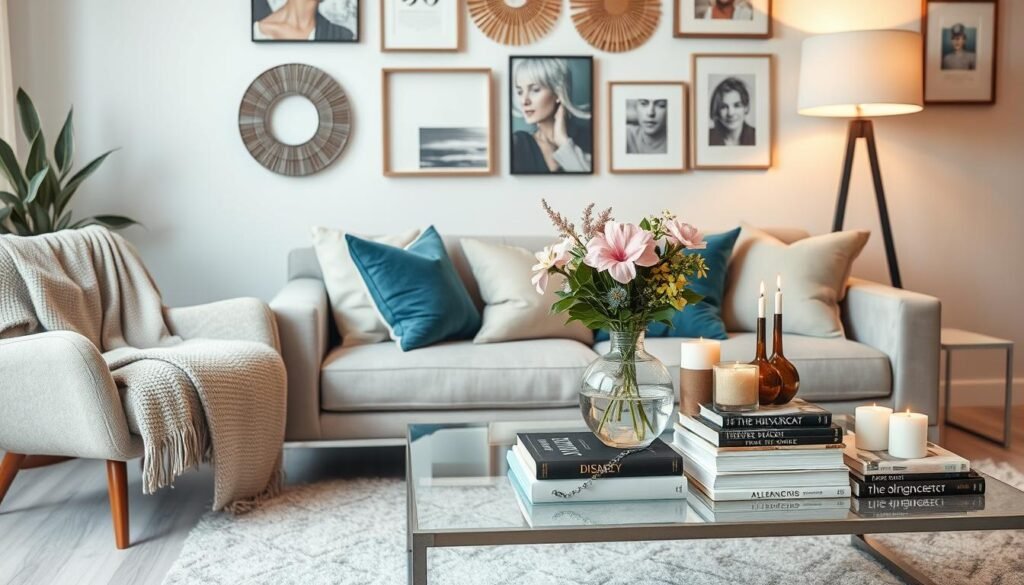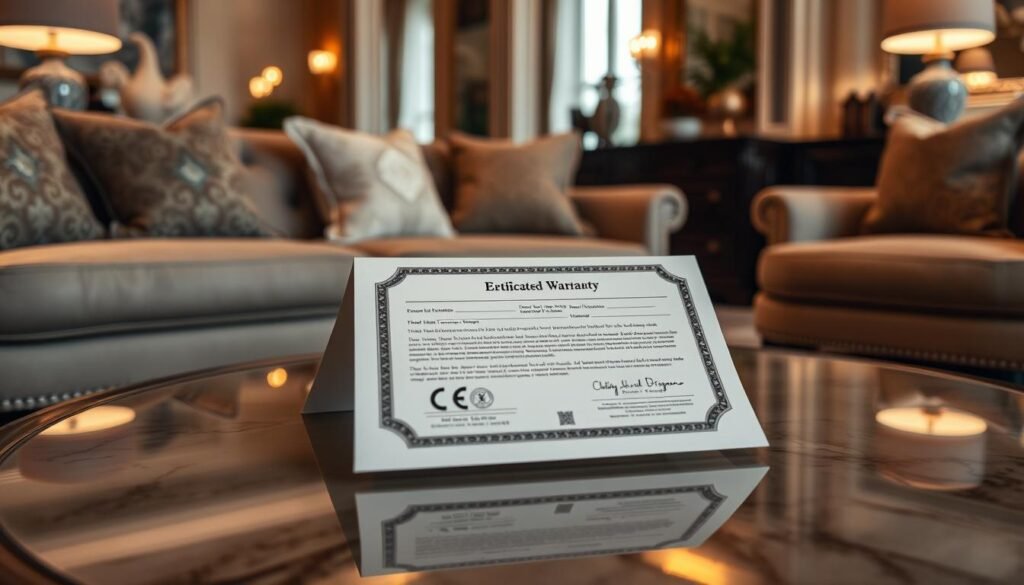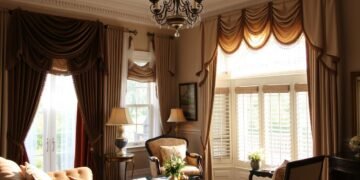Americans spend about 90% of their time indoors1. This fact shows how important furniture is in our daily lives. Choosing the right pieces can turn your space into something special.
Selecting furniture blends comfort, style, and function. It’s not just about looks. This guide offers 15 tips to help you make smart furniture choices for your home.
Let’s explore how to create a space that reflects your personality. These tips will help you build a beautiful and practical living area. They work for both new and experienced decorators.
Table of Contents
- 1 Understanding Your Space Requirements and Measurements
- 1.1 Room Dimensions and Layout Planning
- 1.2 Relatedarticles
- 1.3 5 Timeless Window Treatments That Will Perfectly Complement Classic Interiors
- 1.4 Bring Charm to Your Home: 6 Traditional Wall Paneling Designs You’ll Love
- 1.5 7 Leather vs. Fabric Sofa Comparisons: Pros, Cons, and Care
- 1.6 Traffic Flow Considerations
- 1.7 Doorway and Entrance Measurements
- 2 Establishing a Realistic Budget for Quality Investment
- 3 Defining Your Personal Style and Design Aesthetic
- 4 Selecting the Right Materials and Finishes
- 5 Furniture & Furnishings for Different Room Functions
- 6 Understanding Frame Construction and Durability
- 7 Exploring Upholstery Options and Fabrics
- 8 Comfort and Ergonomic Considerations
- 9 Color Coordination and Pattern Mixing
- 10 Storage Solutions and Organizational Features
- 11 Sustainable and Eco-friendly Furniture Choices
- 12 Lighting Integration with Furniture Placement
- 13 Accessorizing with Complementary Decor
- 14 Warranty and Maintenance Considerations
- 15 Conclusion
- 16 FAQ
- 16.1 How do I measure my room for furniture?
- 16.2 What’s the best way to set a budget for furniture?
- 16.3 How do I choose the right style of furniture for my home?
- 16.4 What are the most durable materials for furniture?
- 16.5 How do I choose comfortable and ergonomic furniture?
- 16.6 What are some space-saving furniture options?
- 16.7 How can I incorporate sustainable furniture into my home?
- 16.8 What should I consider when coordinating furniture with lighting?
- 16.9 How important are warranties for furniture purchases?
- 16.10 What are some tips for mixing patterns and colors in furniture and decor?
Key Takeaways
- Measure your space carefully before purchasing furniture
- Invest in quality pieces for longevity and comfort
- Consider multi-functional furniture for smaller spaces
- Balance aesthetics with practicality in your choices
- Explore sustainable and eco-friendly furniture options
- Pay attention to material durability and maintenance requirements
- Don’t forget to factor in lighting when selecting furniture
Understanding Your Space Requirements and Measurements
Accurate measurements are key to successful space planning. Knowing your room’s dimensions ensures perfect furniture fit. This knowledge enhances your home decor and overall design.
Room Dimensions and Layout Planning
Begin by measuring your room’s width, length, and height. Most furniture comes in standard sizes, aiding in planning and purchasing.
Use tools like MagicPlan for digital measurements or traditional pen and paper2. Note architectural features like windows, doors, and fireplaces32.
Traffic Flow Considerations
Consider how people will move through the space when planning. Leave ample walkways between furniture pieces for easy movement.
For doorways, keep furniture at least 4 inches less than passage measurements3. This prevents cramped spaces and awkward arrangements.
Doorway and Entrance Measurements
Measure all doorways and entrances carefully. Furniture’s diagonal height must be less than the entryway dimension3.
Consider the delivery path and other potential obstacles. For windows, measure floor to bottom and top heights3.
Use tools like Floor Planner or Room Sketcher for easier visualization. These digital tools help manipulate furniture sizes for precise planning2.
Establishing a Realistic Budget for Quality Investment
Setting a furniture budget is key when planning your home decor. It balances affordability with quality, ensuring wise investments in your living space. Furnishing budgets typically range from 10% to 50% of your home’s cost4.
Factor in your space’s style and purpose when budgeting. A rustic cabin costs less to furnish than a modern primary home4. For main residences, prioritize quality over quantity due to expected wear4.
- Furniture
- Rugs
- Lighting
- Wall décor
- Window treatments
- Styling accessories
Invest in essential pieces like beds, chairs, and sofas. A quality table typically costs between $500 and $2,7005. Don’t forget shipping charges, which can be about 12.5% of the item’s price5.
To stretch your budget while maintaining quality, try these strategies:
- Opt for second-hand items
- Upcycle existing pieces
- Use coupons and shop during sales
- Explore affordable furniture options
Consider the total lifecycle value when choosing furniture. A high-quality chair might cost more upfront but last longer. This approach can lead to big savings over time6.
| Furniture Type | Initial Cost | Lifespan | Annual Maintenance |
|---|---|---|---|
| High-Quality Chair | $400 | 10 years | $25 |
| Low-Cost Chair | $200 | 5 years | $50 |
Focus on quality investments and long-term value to create a beautiful home. Your budget should guide your choices while allowing for adjustments. Remember, it’s a framework to help you make smart decisions5.
Defining Your Personal Style and Design Aesthetic
Discovering your unique interior design style is key to creating a space that reflects you. Explore various design elements and approaches. Develop a cohesive look that matches your taste and lifestyle.
Modern and Contemporary Styles
Modern furniture and contemporary decor focus on clean lines and minimalism. These styles often use neutral colors with bold accents. Many homeowners use Pinterest and YouTube to visualize these sleek designs7.
Interior designers recommend starting by defining personal tastes and preferences. In fact, 78% of designers suggest this approach8.
Traditional and Classic Elements
Traditional furnishings draw inspiration from 18th and 19th-century designs. They feature rich colors, ornate details, and luxurious fabrics. This timeless style creates a warm, inviting atmosphere.
To explore traditional elements, many people visit friends’ homes or restaurants. These real-life examples provide great inspiration7.
Eclectic and Fusion Approaches
Eclectic design combines various styles, eras, and textures. This approach allows for creativity and self-expression. It creates a unique, personalized space.
Most designers (92%) suggest looking back at past travel experiences. This helps identify design elements that match your personal style8. Creating a vision board can organize diverse design preferences into a cohesive look7.
There’s no wrong answer when defining your style. You may be drawn to multiple design approaches. This often results in a blend of aesthetics that truly represent you9.
Embrace your preferences and incorporate personal interests. This will help create a space that feels authentically yours.
Selecting the Right Materials and Finishes
Furniture materials and finishes impact aesthetics and functionality. Wood offers warmth and versatility, bringing natural beauty to any space. From rich mahogany to light pine, wood remains a timeless choice.
Metal frames provide sleek, modern looks and exceptional durability. They’re perfect for contemporary or industrial-inspired spaces. Glass surfaces add elegance and create an illusion of space.
Leather upholstery exudes luxury and improves with age. It’s easy to clean, making it practical for busy households. Fabric options offer endless possibilities in colors and textures.
“Choosing furniture made from sustainable materials and manufacturing processes is beneficial for the environment, health, and well-being.”10
Consider durability when selecting materials. High-pressure laminate is budget-friendly and durable for casegoods like cabinets and desks11. Engineered stone like quartz offers superior heat and scratch resistance for surfaces11.
In healthcare settings, cleanability is crucial. Wipeable, coated fabrics like vinyl are recommended for patient spaces. These materials withstand frequent sanitization11.
Vinyl products like LVT flooring are praised for cleanability and durability. They also require low maintenance, making them ideal for various settings11.
| Material | Durability | Maintenance | Aesthetics |
|---|---|---|---|
| Wood | High | Moderate | Warm, natural |
| Metal | Very High | Low | Modern, sleek |
| Glass | Moderate | High | Elegant, spacious |
| Leather | High | Low | Luxurious |
| Fabric | Varies | Moderate | Versatile |
Eco-conscious consumers are turning to sustainable materials like bamboo and cork. Recycled materials are also gaining popularity12. These options create healthier, environmentally friendly living spaces.
Investing in quality materials ensures long-lasting furniture. Choose wisely to enjoy your furniture for years to come.
Furniture & Furnishings for Different Room Functions
Choosing the right furniture creates functional and stylish spaces. Let’s explore essential pieces for various areas of your home.
Living Room Essentials
Your living room blends comfort and style. Key pieces include sofas, sectionals, accent chairs, and coffee tables.
These offer seating and add personality. Multi-functional furniture like sleeper sofas can provide guest accommodations13.
Bedroom Components
Craft a cozy retreat with the right bedroom furnishings. Essential items are beds, nightstands, dressers, and mirrors.
Pick a bed that fits your space and style. Nightstands provide storage, while dressers hold clothing13.
Home Office Requirements
A well-designed home office boosts productivity. Key elements include a desk, ergonomic chair, and storage solutions.
Look for desks with built-in storage to save space. Adjustable-height desks offer versatility13.
Multi-functional furniture can be a game-changer in tight spaces. Resource Furniture offers quality, made-to-order pieces for space optimization14.
| Room | Essential Furniture | Multi-functional Options |
|---|---|---|
| Living Room | Sofa, Coffee Table, Accent Chair | Sleeper Sofa, Storage Ottoman |
| Bedroom | Bed, Dresser, Nightstand | Wall Bed, Storage Bed |
| Home Office | Desk, Ergonomic Chair, Bookcase | Folding Desk, Convertible Table |
Quality furniture is an investment. High-quality pieces last longer and maintain their appearance better than mass-produced alternatives14.
Understanding Frame Construction and Durability
The frame is the backbone of quality furniture. It’s crucial for durability and longevity. Let’s explore key aspects of frame construction for sturdy, long-lasting pieces.
Wood Frame Options
Wood frames are popular due to their strength and versatility. Kiln-dried hardwood resists warping, making it excellent for sofa construction15. Solid hardwoods outperform softwoods and engineered woods in strength and density15.
Engineered hardwood with seven layers of solid wood offers exceptional strength. It balances durability and cost-effectiveness16. Look for joinery methods like mortise and tenon or dovetail for well-built frames15.
Metal Frame Benefits
Metal frames provide sturdy support in certain furniture designs. They offer excellent stability for pieces that need to withstand heavy use. Check the quality of welds and metal thickness when considering metal frames.
Quality Indicators
Several factors indicate high-quality furniture frames:
- Reinforced corners with corner blocks for added support1516
- Sturdy joints, such as mortise & tenon or double dowel1516
- Use of hardwood or strong engineered wood1716
- Suspension systems made of high-quality springs or foam17
- Additional reinforcement with glue, screws, or staples16
Choose furniture with strong frames made of solid wood or metal. This ensures support and longevity17. A well-built custom sofa with a durable frame keeps its shape with regular use17.
| Frame Material | Durability | Cost |
|---|---|---|
| Solid Hardwood | Excellent | High |
| Engineered Hardwood | Very Good | Medium |
| Metal | Excellent | Medium to High |
| Softwood | Good | Low to Medium |
Know frame construction and quality indicators. This knowledge helps you choose durable, long-lasting furniture for your home. Make smart decisions for your furniture investments.
Exploring Upholstery Options and Fabrics
Upholstery fabrics are key in furniture selection. They impact both style and function. Choose from a range of options to suit your needs.
Natural fibers offer timeless appeal and breathability. Cotton provides comfort and versatility. Linen absorbs moisture well, creating a relaxed look1819.
Synthetic options excel in durability. Polyester resists wrinkles and fading, ideal for high-traffic areas. Microfiber offers exceptional stain resistance and easy cleaning.
It’s perfect for homes with kids and pets18.
Leather furniture symbolizes luxury and longevity. It’s easy to clean and develops a beautiful patina. Vinyl upholstery provides similar benefits with added water resistance18.
Velvet and silk exude elegance. Velvet has a plush texture but needs regular care. Wool offers durability, stain resistance, and comes in various textures18.
Consider color retention and pattern when choosing upholstery. High-quality dyes resist fading from sunlight and cleaning. Patterns like damask and floral prints add depth to your space19.
Check double rub test results for durability. Higher numbers indicate more durable fabrics. Colorfastness ratings show how well fabric retains color under various conditions19.
Comfort and Ergonomic Considerations
Comfort and ergonomics are key when picking home furniture. Long sitting can cause health issues. Let’s look at features that make seating comfy and safe.
Seating Support Features
For comfy seating, look for these key elements:
- Proper lumbar support to maintain spine alignment
- Adjustable heights and angles for personalized comfort
- High-resilience foam cushions for durability and support
- Breathable fabrics to enhance comfort during extended use
Ergonomic furniture can ease back pain and boost mood. It can also improve blood flow and make you more productive at home20.
For living room seating, good back support and cushions are crucial. Armrests also play a big role in ergonomic quality20.
Ergonomic Design Elements
Ergonomic design fits any room at home20. Key elements include:
- Height-adjustable desks and chairs for optimal positioning
- Footrests for improved circulation and comfort
- Designs that encourage movement to reduce strain
More people want ergonomic furniture now. There’s a trend for adjustable dressing tables in bedrooms. Home offices also use multi-use furniture for better comfort21.
Ergonomic outdoor furniture can boost wellness too. Think about getting comfy patio chairs for your yard20.
| Furniture Type | Ergonomic Features | Benefits |
|---|---|---|
| Office Chair | Adjustable height, lumbar support | Reduces back pain, improves posture |
| Standing Desk | Height adjustability | Promotes movement, reduces sitting time |
| Ergonomic Sofa | Proper back support, quality cushions | Enhances comfort, supports spine |
| Adjustable Bed | Multiple positioning options | Improves sleep quality, reduces strain |
Choose ergonomic furniture for a healthier home. It can boost your well-being and make you more productive21.
Color Coordination and Pattern Mixing
A cohesive interior color palette creates a harmonious living space. Start with a striking fabric for curtains or headboards. Then, pick complementary fabrics for other soft furnishings22.
Pattern mixing requires balance. Combine patterns of different scales to add depth to your room22. Try mixing florals, stripes, abstract designs, and ethnic patterns for variety22.
Accent pieces bring your color scheme to life. They add pops of color without overwhelming the space. Balance plain and patterned elements for a more impactful design22.
Layering and mixing patterns gradually allows you to build an experience within the room. Be bold and creative in your pattern selection!
Use the color wheel to harmonize your scheme22. Keep it simple with two to three colors. Add interest by using vintage fabrics as framed artwork22.
| Pattern Type | Characteristics | Best Used For |
|---|---|---|
| Florals | Small, medium, or large scale | Soft furnishings, wallpaper |
| Geometrics | Varied sizes and shapes | Modern touch, accent pieces |
| Stripes | Versatile, classic | Upholstery, curtains |
| Animal prints | Bold, luxurious | Statement pieces, accessories |
Consider scale and type when mixing patterns. Pair a large-scale showstopper fabric with medium or small-scale patterns22. Include designs like stripes and spots for a diverse interior palette22.
Storage Solutions and Organizational Features
Smart storage furniture helps create a clutter-free, functional home. Let’s explore space-saving designs that can transform your living spaces.
Built-in Storage Options
Built-in storage furniture seamlessly integrates into your home’s design. Storage ottomans hold spare pillows, throws, and out-of-season clothes23. Media cabinets keep your living room tidy by storing papers and miscellaneous items23.
Coffee tables with drawers hide remotes, board games, and magazines23. For bedrooms, consider bed frames with drawers to store extra blankets and linens23.
Multi-functional Furniture Pieces
Multi-functional furniture maximizes space efficiency. Bar units organize cocktail items for easy access23. End tables with drawers store remotes, books, and iPads23.
Desks with hutches offer storage for paperwork and office supplies23. Console tables with cabinets work well in entryways or dining rooms23.
IKEA offers affordable storage solutions. Their Winter Sale includes discounts on storage cabinets, TV units, and bookcases. Select storage boxes and baskets are up to 40% off24.
| Storage Solution | Best For | Benefits |
|---|---|---|
| Storage Ottoman | Living Room | Hidden storage, extra seating |
| Bed Frame with Drawers | Bedroom | Compact storage, no under-bed clutter |
| Desk with Hutch | Home Office | Ample paperwork storage, organized supplies |
| Console Table with Cabinets | Entryway/Dining Room | Versatile storage, decorative display |
About 60% of furniture pieces offer storage or organizational features23. Choose multi-functional pieces to improve your home’s organization. Make the most of your living space with smart storage solutions.
Sustainable and Eco-friendly Furniture Choices
Eco-friendly furniture reduces your environmental impact and promotes healthier living spaces. It looks great and helps create a greener home. Let’s explore key aspects of eco-conscious furnishing.
Look for certifications that guarantee eco-friendly practices when shopping for sustainable furniture. The Global Organic Textile Standard (GOTS) requires 95% certified organic raw materials. GREENGUARD ensures low volatile organic compounds (VOCs) and chemical emissions25.
OEKO-TEX Certification guarantees furniture components are free from harmful substances. Fair Trade Certification emphasizes fair wages and ethically-sourced materials25.
Bamboo, cork, and jute are excellent choices for sustainable furniture. Bamboo grows rapidly and offers strength. Cork provides insulation and resilience. Jute is both durable and biodegradable, ideal for eco-conscious furnishings26.
Hemp, known for its strong fibers, is another sustainable option for upholstery and ropes26. Upcycled furniture creatively reduces waste and adds unique pieces to your green home decor.
For upholstery and draperies, consider sustainable fabrics like organic cotton, linen, or recycled polyester26. These choices help minimize landfill contributions and support eco-friendly practices.
| Sustainable Material | Benefits | Applications |
|---|---|---|
| Bamboo | Rapid growth, strength | Furniture frames, flooring |
| Cork | Lightweight, insulating | Stools, tabletops |
| Jute | Durable, biodegradable | Rugs, upholstery |
| Hemp | Strong, versatile | Fabrics, ropes |
Recycled furniture supports a circular economy. Look for items made from reclaimed wood or recycled plastics. These choices save resources and create unique, character-filled pieces for your home.
Sustainable furniture often requires less energy to produce and transport. This results in a lower carbon footprint, especially when sourced locally26. By choosing eco-friendly furniture, you’re making a positive impact on the environment.
Lighting Integration with Furniture Placement
Lighting design enhances the beauty and function of living spaces. Natural and artificial lighting work together to create a harmonious environment. This setup complements your furniture placement perfectly.
Natural Light Optimization
Position furniture to make the most of natural light. Place workstation desks near windows to create a pleasant working environment. This setup reduces the need for artificial lighting.
Light-colored furniture can reflect sunlight effectively. It makes your space brighter and more inviting27.
Artificial Lighting Solutions
Use various lighting types to enhance your room’s atmosphere. Ambient lighting fixtures like chandeliers provide general illumination above key furniture pieces28. Task lighting with floor or table lamps works well near reading nooks.
Accent lighting highlights specific furniture pieces. It adds depth and visual interest to your space28. Smart lighting systems offer customizable brightness levels and color temperatures.
LED technology is a popular choice for furniture lighting. It’s energy-efficient, durable, and has a wide range of applications29.
| Lighting Type | Function | Ideal Placement |
|---|---|---|
| Ambient | General illumination | Ceiling fixtures above key furniture |
| Task | Focused lighting for specific activities | Near reading areas and workspaces |
| Accent | Highlight specific furniture or decor | Directed at art pieces or statement furniture |
Thoughtful lighting integration creates a well-lit, inviting space. It enhances both style and functionality in your home. Balance natural and artificial light sources for the best results.
Accessorizing with Complementary Decor
Boost your space with carefully picked home accessories. Mix different elements smoothly. Add textiles for warmth and depth in your rooms30.
Throw pillows and rugs can unite your color scheme. Wall art makes your space unique. Domaine offers various wall decor, from modern art to sculptures30.
Large floor mirrors can make small spaces look bigger. They create the illusion of more room30.
For tabletop accents, mix textures, materials, and finishes. This adds depth and visual appeal30. Arrange books vertically and horizontally on shelves.
Mix in decorative items for a curated look. Group similar accents in odd numbers. Vary their heights for a dynamic appearance30.
Color is key in accessorizing. Human eyes can see over 100 color shades in many combinations31. Use complementary colors for striking contrasts.
The main complementary color pairs are yellow-purple, red-green, and blue-orange31.
| Primary Color | Complementary Color |
|---|---|
| Blue | Orange |
| Red | Green |
| Yellow | Purple |
Your goal is to create a space that shows your style. Keep a balanced look. These tips can help make your home stylish and cozy.
Warranty and Maintenance Considerations
Understanding furniture warranties is key to protecting your investment. Warranties offer different levels of protection. Proper maintenance is crucial for keeping your furniture in top shape.
Warranty Coverage Options
Full warranties are rare in the furniture industry. They offer unlimited coverage to all buyers32. Limited warranties are more common, specifying coverage duration from the sale date32.
Warranty periods typically last one to ten years. This varies by item and manufacturer33. Upholstery guarantees often cover defects but not performance issues like sagging32.
Register your warranty promptly after purchase to keep it valid. Failing to do so can void warranties or delay claims33. Keep all warranty documents safe to avoid issues when filing claims33.
Care and Maintenance Requirements
Proper care maintains appearance and warranty coverage. Follow manufacturer cleaning instructions to avoid voiding your warranty33. Consider fabric protection treatments for upholstered pieces to prevent stains and wear.
For warranty issues, contact the retailer where you bought the item. Manufacturers often require this for resolving problems32. Avoid common claim mistakes like missing deadlines or providing incomplete documentation33.
Understanding your warranty and following maintenance tips ensures long-lasting comfort. This approach will help you enjoy stylish, well-maintained furniture in your home.
Conclusion
Choosing the right furniture blends practicality with personal style. These 15 tips will help you make smart decisions for your living spaces. Comfortable furniture can boost your well-being by releasing endorphins34.
Prioritize quality and comfort when selecting furniture. Look for pieces that are both attractive and durable35. Consider eco-friendly options to reduce your environmental impact35.
Your furniture choices can greatly affect your daily life. Well-designed spaces promote order and efficiency. Cluttered environments, however, can lead to stress34.
In workplaces, the right furniture can improve employee productivity. It can also increase job satisfaction36.
Use these tips to create a visually appealing space. Your home should be functional and comfortable. This approach ensures your space reflects your style while meeting your needs.

